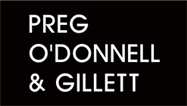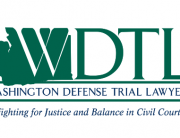by Eric Gillett, Managing Partner
Published in the King County Bar Association’s BAR Bulletin’s monthly column “Spotlight on Mediation: Strategies for Success”.
January, 2023
When I was a young attorney, my mentors taught me that litigation was intellectual warfare. I needed to prepare for battle. Litigation was a chess match where pawns were exchanged and every move was to protect the King, that being your client. Before heading off to a hearing, one senior partner loved to say, “return with your shield or on it.” 1The phrase “with your shield or on it” is attributed to mothers of Spartan warriors sending their sons off to battle. If their sons returned without their shield, it meant that they were cowards and had dropped their shield to run for safety rather than fight and die honorably, with their bodies carried home on their shields. You don’t learn this in law school.
The language of litigation is conflict. “Complaint,” “Answer,” and “Affirmative defenses.” We prosecute a claim. We defend a client. We argue, and argue, and argue. So, it is not surprising that after months or years of fighting, it is often difficult to set aside our differences and find common ground to sign a declaration of peace.
The question I’ve asked myself over the years is whether that really is the best approach to litigation. And even if the battle analogy is appropriate to the reality, does the same hold true for mediation when you come together with your opponent and, working with a third-party neutral, try to agree on a solution? I think not.
I can’t tell you how many mediation briefs I have read where one counsel or the other offers no quarter regarding liability or damages. The case is “cut and dried,” “liability is clear and should not be contested,” or worse, “we do not see any exposure to our clients, but we come in good faith in hopes of resolving this case with your help.” It is as if we believe that any acknowledgement that the other side may have a winning argument leaves us fully exposed and unable to defend ourselves from opposing counsel’s attack.
During a recent mediation, brought by an estate for wrongful death, opposing counsel refused to discuss the case value in the context of his client’s own comparative fault. His point, which he made vociferously in front of his client, was that discussing comparative fault would not get the case settled when defense counsel refused to offer money in what he described a reasonable range.
In addition, plaintiff’s counsel kept insisting that the defendant refused to take any responsibility for the accident. Unfortunately, his client was happy to stay in that echo chamber and did not push back, even in the face of the defendant’s obvious willingness to discuss shared responsibility.
Trust me when I say the evidence developed by the defense left little doubt that the decedent was partially, if not mostly, at fault for his tragic demise. In fact, since that failed mediation, during subsequent discussions, plaintiff’s counsel admitted that a jury was likely to conclude that the decedent had some responsibility. But he remained convinced that at trial the defendant would argue for a defense verdict based on an argument that it had no fault. So, whether out of a need to save face in front of his client or a misguided strategy to drive the settlement offers up by refusing to negotiate from a multifaceted position, plaintiff’s counsel lost the opportunity to settle the case.
Why did this happen? Why would he not agree to address liability and comparative fault? I think it is because, like so many others, both on the plaintiff’s side as well as the defense, he was unwilling to be vulnerable. He refused to be honest with himself, his client, and the mediator.
1. Vulnerability Is Your Sword
Vulnerability, being honest, expressing empathy may feel like you are taking a risk that opposing counsel will see that as weakness or even a tacit acknowledgment their case is stronger than your own. But it is quite the opposite. These three virtues are a sure-fire way to allow you to show strength because you are willing to acknowledge your weaknesses.
Vulnerability is your sword because it increases your credibility. Acknowledging the other side has a strong argument or that you have a weak position demonstrates you are confident enough in your case to concede certain points. The alternative, holding fast to a position in the face of overwhelming contrary evidence, simply sends the message that you are not capable of reasonably evaluating your case. You will not be negotiating from a position of strength even though all you do is express strength. Chest pounding has its limits.
Openly admitting the shortcomings of your case, on the other hand, allows you to stand firm when discussing the strengths of your case. It adds to your credibility when you ask the mediator to carry arrows to the other room that truly explain why you are well positioned to make the offer you instruct the mediator to deliver.
This level of vulnerability is hard. As I mentioned at the outset of this article, we are trained to fight. We are trained to win. Settling, compromising is sometimes viewed as a sign of weakness. One of our former attorneys, a trial lawyer for whom I have a deep degree of respect, painted the image of a chicken on a piece of cardboard. And when it became known an attorney in our office had settled a case, the chicken painting would mysteriously appear attached to the door of the settling attorney for all to see. This was done in the spirit of fun and not to ridicule. But the not-so-subtle message was there nonetheless: chickens settle cases. Remember what Spartan mothers said, “with your shield or on it.” So, it should come as no surprise we find it hard to be vulnerable and show any weakness to our opponent. But it works.
2. Honesty Is Your Shield
Honesty is your shield because honesty is impenetrable. When you are in mediation, like in life, and you strive for scrupulous honesty, a good mediator will see that and use that to your advantage. When I walk (ok, click) into the other room, having absorbed your honest assessment of a case, heard you take stock of your strengths as well as your weaknesses, I am emboldened to carry your message, whether that be a legal argument or a settlement offer. It is your greatest strength.
When the other side is faced with this level of honesty, it is impossible for them to argue effectively otherwise. They may not like your position. For any number of reasons, they may not accept your position. But their ability to respond with a counter argument that carries any weight is very difficult. And they will see, even if they won’t admit, you have a strong position.
Of course, this does not win the day all the time. There are too many variables to succeed with such a simple formula. But even though settlement is often driven by subjective evaluations of general or consequential damages, my experience informs me that when attorneys are able and willing to use vulnerability and honesty as their weapons of war, they will more often than not come home with their shield, rather than on it.
Eric Gillett is a founding member and managing partner at Preg, O’Donnell & Gillett. He is licensed in Washington, Oregon, and Alaska. He has tried dozens of cases to verdict. A navigator of resolutions, he is a commercial mediator and can be contacted through his legal assistant, Jasmine Reddy, at 206-287-1775 or jreddy@pregodonnell.com. You can also reach out through his website at gillettmediation.com and his email at eric@gillettmediation.com. While in person mediations can be arranged with all participants fully vaccinated, Zoom mediations are also available and encouraged.
[ Download a PDF of this article here. ]





